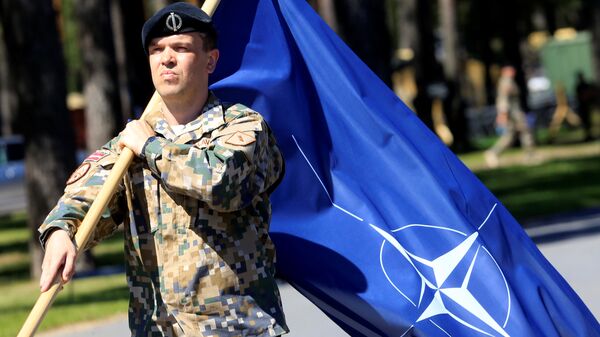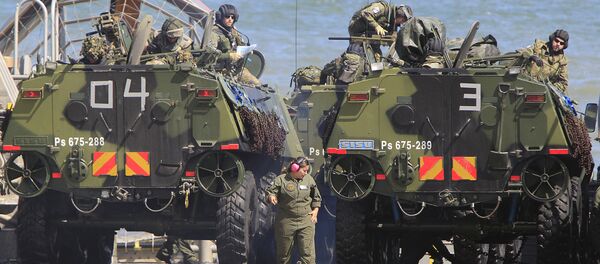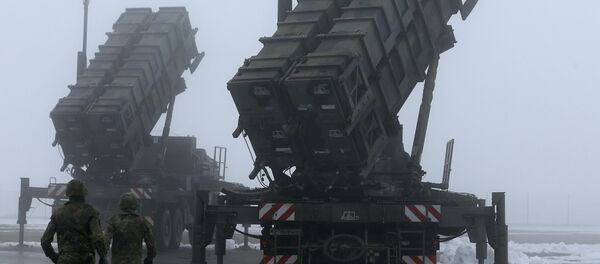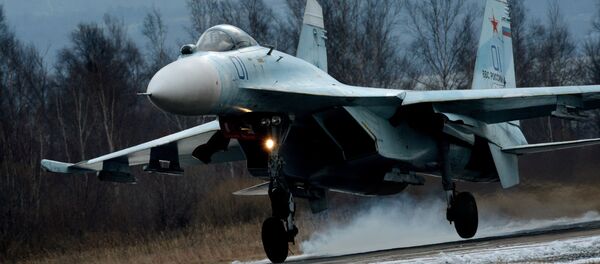Speaking to media earlier this week, Kondratyev, a member of the Russian Senate's Committee on Defense and Security, remarked that the NATO alliance has already conducted five exercises in the Baltic region this year which carry an offensive, aggressive character aimed against Russia.
"For the first time in recent years, the aim of [NATO's] exercises was the possibility of transferring alliance troops to Estonian territory. A number of ships involved in these exercises are capable of carrying long-range cruise missiles which can reach cities in the Leningrad region and the city of St. Petersburg," the senator said.
Drills including "the tasks of striking the Kaliningrad region are being worked out. The situation in the Baltic direction is extremely unstable," the senator warned.
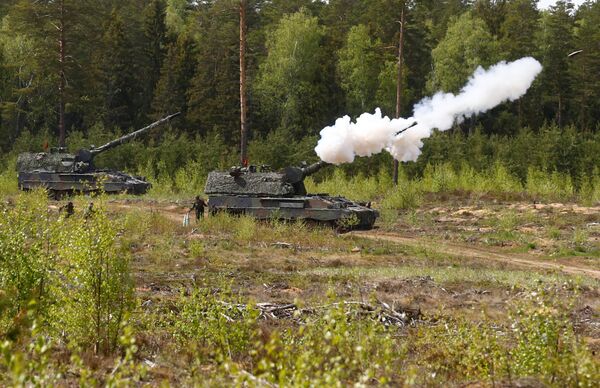
Speaking to Svobodnaya Pressa, an independent online Russian newspaper, veteran military columnist Viktor Litovkin stressed that Senator Kondratyev had every reason to be concerned by the NATO buildup in the Baltic.
"In my opinion, NATO is actively preparing for an attack on Russia," the retired colonel said. "This is evidenced by a number of factors. In the Baltic, special roads are being built to our borders; military airfields and other facilities are being modernized."
In any case, the military observer emphasized that NATO's task, at a minimum, is to keep Russia's military strained, and to force EU countries to up their military budgets to 2% of GDP to guard against the mythical 'Russian threat'.
"Of course for now, the capabilities of NATO and the United States are not on par with ours in this region. But we should not be indifferent to what is going on in the 'distant suburbs' of St. Petersburg," Litovkin said.
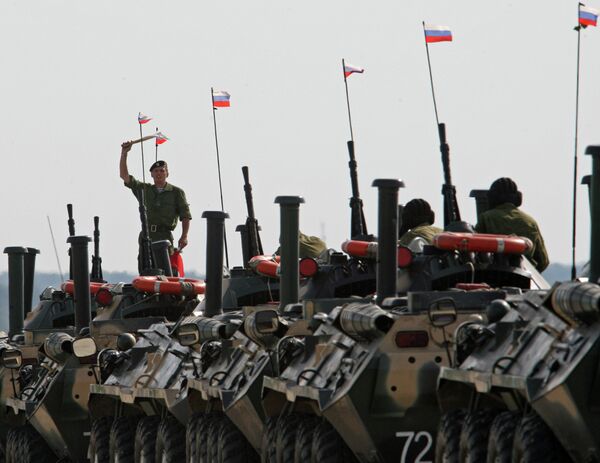
Russia, he added, will be forced to bear additional costs to counter the growing NATO threat, which poses the danger of a new arms race.
"We will be forced to strengthen some of our brigades and reorganize them into divisions. This requires spending. Funds are also required for the creation of new military infrastructure – heated storage for military equipment, military towns in the Leningrad region, etc. In the near future, the military plans to deploy a brigade of Iskander [mobile short-range ballistic missile systems] to Kaliningrad. They too will require infrastructure."
At the same time, however, Litovkin emphasized that Russia will not follow in the Soviet Union's footsteps in its approach to the threat posed by the Western alliance. "Of course we are not carrying the kinds of huge defense expenditures as existed in the Soviet era. Our tasks do not include showing the world that we have more weapons than NATO."
"For now," the expert said, "our missile silos beyond the Urals remain relatively unreachable. That is why we have paid a special attention to the defense of the Arctic and the North Sea Route. But the US and NATO desire to neutralize our nuclear shield in one blow is growing."
Finally, Litovkin noted that NATO countries' recent operations on the ground, from Iraq to Afghanistan, to Libya and other countries have shown that their success can be limited when there is any serious resistance.
"Furthermore, NATO is becoming an increasingly loose structure, and it cannot be considered a certainty that in the event of conflict with Russia, all of the countries of the alliance would act as a united front. Nevertheless, I would not underestimate the enemy. Sometimes even a small dog's bite can be very painful," the expert concluded.
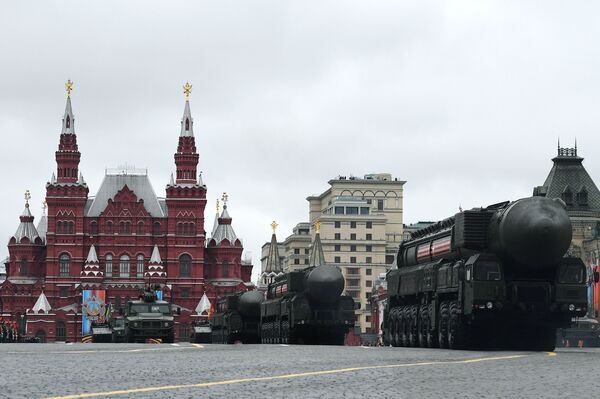
For his part, political scientist and security expert Igor Nikolaichuk noted that NATO's Baltic buildup, conducted under the pretext of a Russian threat to the region, is actually based on the fact that the alliance has been in search of a new enemy ever since its operations in Afghanistan were curtailed.
According to Nikolaichuk, NATO understands perfectly well that Moscow lacks either the strategic or the political motivation for any offensive military operations in the Baltic. But they should also understand, however, that Russia would fight tooth and nail to defend Kaliningrad and St. Petersburg, up to and including the use of nuclear weapons, if necessary.
Ultimately, Nikolaichuk suggested that the alliance's Baltic buildup actually harks back to century-old geopolitical considerations, and not those of the US, but of their European allies. "In general, the Baltic question is important not so much for the US as for…Britain. Since the end of the First World War, the Anglo-Saxons got it into their head that this territory should not belong either to Russia or Germany, because in their opinion, control over this region by one or the other would give them too much influence in Eastern Europe."
